HNRS 3323-001
This course situates the justifications for America’s end of isolationism
and entry into the "Great War," concluding with the entry of America
into World
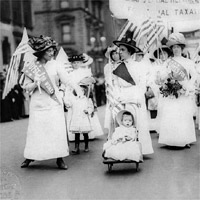 War II. Between these two cataclysmic events, the course aims to
identify the artistic responses, supplemented by some of the historical
significances of the American Nineteen Twenties, Thirties, and early Forties, of
a nation that emerges as a world power, as it culturally matures.
War II. Between these two cataclysmic events, the course aims to
identify the artistic responses, supplemented by some of the historical
significances of the American Nineteen Twenties, Thirties, and early Forties, of
a nation that emerges as a world power, as it culturally matures.
Students unfortunately know little of their national heritage in terms of what we may term modern history/culture—most importantly, the interconnections between war, economy, and the arts. That history gives significance not only to America’s entry as a world power on the global stage, but details as well the coming of age of American literature and culture. Not until the war against Spain and our belated entry into the European war does our nation begin to end its regional divisiveness and to recognize its artistic voice and interrelatedness to European culture.
The class will emphasize for students the importance of the expatriates of
literature—such as Hemingway and Fitzgerald—who gave to our country its
uniquely American voice in literature following the Great War. The depression of
the Thirties, as the Great War had done for literature, provided the fodder for
a new wave of writing, most especially in the drama, which developed and thrived
through the National Theater and numerous federal grants awarded under the
auspices of labor.
American drama, which lagged so greatly behind fiction, was not long removed from the Old World melodramas that dominated the national stage. But in a time of want, surprisingly, the national subsidization of the arts in America provoked the voices of such as O’Neill and Odets on the stage, even as political turmoil encouraged the efforts of Steinbeck, Toomer, and Wright. And while the arts were inspired by the necessities brought about by the Depression, a new emerging art form, the cinema, attempted to distract us from poverty, with notable escapist films such as "It Happened One Night," "Duck Soup," "The Wizard of Oz," and "Gone With the Wind."
Students will realize, it is hoped, that historical epochs are comprised of multi-perspectives wrought by artistic achievements. Literary and cinematic reflections The "Great War," its after-effects, and trepidations about the future should offer students a unique cultural view of a complex, transitional period in America’s past and coming of age in the family of nations.
Our study
together seeks to link and to make known the impetuses brought about by
America’s end of isolationism and entry into the Great War, clarify the
singularly American voice in literature, drama, and film in the thirties, and
then investigates the
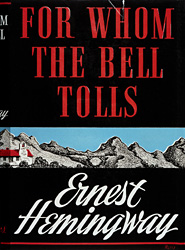 beginnings of how that voice changes with the advent of a
new war, one provoked by hostilities against its own territory. By means of the
interdisciplinary modes of study, students should appreciate the multi-layered
modes of artistic expression that arose out of America’s political entry into
the world arena and the economic depression that caused many of those arts to
flourish. A view of history, therefore, may come through the artistic
expressions of those who themselves attempt to face that left behind in order to
confront the present—much like Steinbeck’s Joad family, who fear that
without their photos,
memento’s, and reminiscences from Oklahoma they will
have no past when settled in California. Such an approach may afford Honors
students a unique historical perspective by virtue of artistic reflection,
supplemented with historical record, as one encouraged in the upper-level
seminars.
beginnings of how that voice changes with the advent of a
new war, one provoked by hostilities against its own territory. By means of the
interdisciplinary modes of study, students should appreciate the multi-layered
modes of artistic expression that arose out of America’s political entry into
the world arena and the economic depression that caused many of those arts to
flourish. A view of history, therefore, may come through the artistic
expressions of those who themselves attempt to face that left behind in order to
confront the present—much like Steinbeck’s Joad family, who fear that
without their photos,
memento’s, and reminiscences from Oklahoma they will
have no past when settled in California. Such an approach may afford Honors
students a unique historical perspective by virtue of artistic reflection,
supplemented with historical record, as one encouraged in the upper-level
seminars.
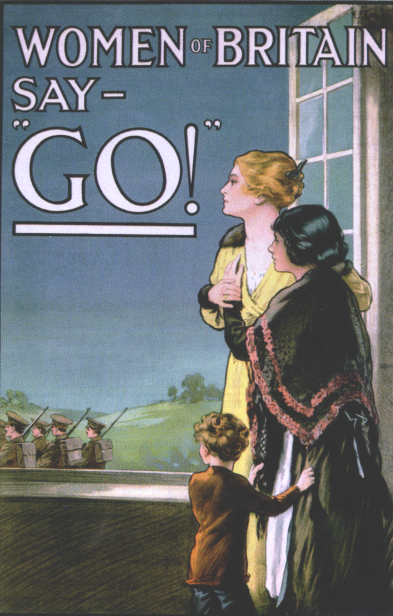
Upper-level students should have the necessary background for a grounding in the fundamentals of this course, having, most importantly, taken those introductory classes both in literature and history that will provide the necessary perspective for situating the texts in proper context. As a junior-level class, this course should nicely blend two disciplines and offer as well an introduction into America’s emerging art form, the cinema, which had not as yet recognized its own relevance and importance in establishing itself as a collector and purveyor of society and culture.
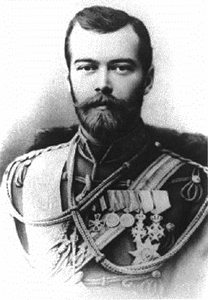 As a junior-level course, students should have a suitable base, made possible
by a general curriculum, for appreciating the historical and artistic
fundamentals of the course. And, given the interdisciplinary approach of the
class, no one area of study will focus to the extent that students would find if
majoring in literature or history, since this class will blend the two, with the
literary reflecting the historical. In our discussions, the course will aim to
use literature to personalize and to situate experience supplemented by readings
in history. While not an inordinate amount of time to cover, the
historical/literary periods represented in the class offer a manageable period
that should, it is hoped, inspire students toward more specific research if so
As a junior-level course, students should have a suitable base, made possible
by a general curriculum, for appreciating the historical and artistic
fundamentals of the course. And, given the interdisciplinary approach of the
class, no one area of study will focus to the extent that students would find if
majoring in literature or history, since this class will blend the two, with the
literary reflecting the historical. In our discussions, the course will aim to
use literature to personalize and to situate experience supplemented by readings
in history. While not an inordinate amount of time to cover, the
historical/literary periods represented in the class offer a manageable period
that should, it is hoped, inspire students toward more specific research if so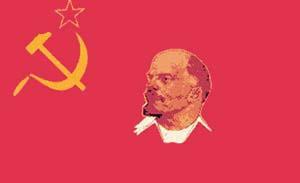 desired, that which might be expected of seniors focusing within their
respective disciplines.
desired, that which might be expected of seniors focusing within their
respective disciplines.
Course Outline
Week one: Voices of War: the poetry of McCrae and fellow poets; Ginsburgh’s The Clock;
(Tuckman’s The Gun’s of August on reserve); [Film: "All Quiet on the Western Front"]
Week two: Historical turmoil: isolationism, imperialism, and communism; readings from Pipe’s
The Russian Revolution
Week three: John Reed; American communism: Ten Days That Shook the World [Film: "Reds"]
Week four: The "Expatriates" at home: Fitzgerald’s The Great Gatsby; readings from Dickstein’s
The Gate’s of Eden
Week five: The New Conscience: Steinbeck’s In Dubious Battle [Film:
"The Grapes of Wrath"] 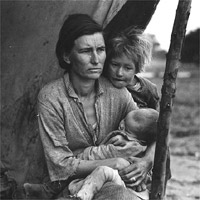
Week six: The Emergence of Drama: O’Neill: Desire Under the Elms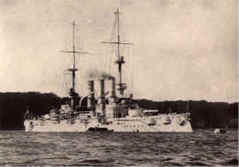
Week seven: The Emergence of Drama cont.: Odets: Waiting For
Lefty; readings from Gregory’s The Silence of Memory and
Jackson’s The Spanish Republic and the Civil War
Week eight and nine: New Voices: Toomer’s Caine and Wright’s Native
Son (on tape)
Week ten: The American ex-patriates: Hemingway’s Stories of the Spanish Civil War and
Rosenstone’s Crusade of the Left
Week eleven: An Emerging New Art-form: Cinema.jpg)
Week twelve: The Maturation of Cinema and the Studio System: West’s Day of the Locust; readings
from Hill and Gibson’s
Film Studies;
and Rosenstone’s Crusade
of the Left
Week thirteen: From the Spanish Civil War to Pearl Harbor; readings
from
Gregory’s The Silence of Memory

Week fourteen: Another War: Jones’ From Here to Eternity [Film: "From Here to Eternity"]
Week fifteen: America at War: The Naked and the Dead [Film: "Saving Private Ryan"]
Course Requirements
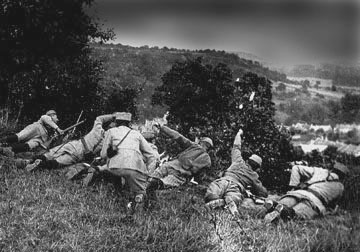 Besides class discussion and lecture, students will be required to take two
examinations—a midterm and final—as well as to write three short papers of
approximately five pages on each of the three areas of study: literature, film,
or history. The assignment of individual student reports will supplement lecture
and discussion. Students will also need to set aside four Thursday
evenings, beginning at 7:00 p.m. for viewing the movies in their entirety as
a group. We will space those Thursdays out over the course of the
semester; but please, if you have any conflicts, do not register for this
class; it is essential that we use those evenings for group responses and to
avoid breaking the continuity of watching them in parts during valuable class
time.
Besides class discussion and lecture, students will be required to take two
examinations—a midterm and final—as well as to write three short papers of
approximately five pages on each of the three areas of study: literature, film,
or history. The assignment of individual student reports will supplement lecture
and discussion. Students will also need to set aside four Thursday
evenings, beginning at 7:00 p.m. for viewing the movies in their entirety as
a group. We will space those Thursdays out over the course of the
semester; but please, if you have any conflicts, do not register for this
class; it is essential that we use those evenings for group responses and to
avoid breaking the continuity of watching them in parts during valuable class
time.
Special Features
Students will be asked to set aside one night a week outside class for five
weeks in order to view the movies in their entirety—Thursday night at 7:00
p.m. is suggested—which will serve much as an outside-of-class reading
assignment might, with the benefit of group reaction to the material. The films
will also be made available to students individually for possible scheduling
conflicts.
Required Reading and Viewing
The following represents a list of primary works that student’s will read or view:
Aldrich, John W. After the Lost Generation [selections].
Dickstein, Morris. Gates of Eden [selections].
Ginsburgh, Justin. The Clock: Concise and Precise Look at World War I [selections].
Gregory, Adrian. The Silence of Memory: Armistice Day, 1919-1946 [selections].

Hill, John and Pamela Church Gibson. The Oxford Guide to
Film Studies
[selections]
Hemingway, Ernest. Stories of the Spanish Civil War.
Jackson, Gabriel. The Spanish Republic and the Civil War, 1931-1939.
Mailer, Norman. The Naked and the Dead.
Odets, Clifford. Waiting for Lefty.
O’Neill, Eugene. Desire Under the Elms.
Pipes, Richard. The Russian Revolution, 1899-1919 [selections].
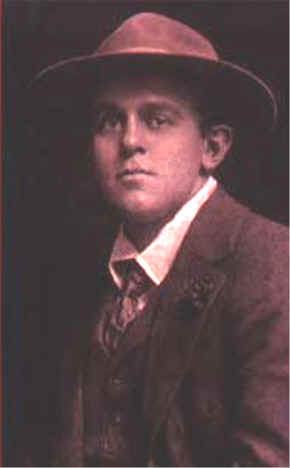
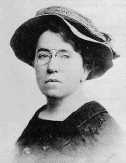
Reed, John. Ten Days That Shook the World.
Rosenstone, Robert. Crusade of the Left: The Lincoln Battalion in
the Spanish Civil War.
Toomer, Jeane. Caine.
Tuckman, Barbara. The Guns of August [selections].
West, Nathaniel. Day of the Locust.
World War I Poetry (Penguin).
Wright, Richard. Native Son.
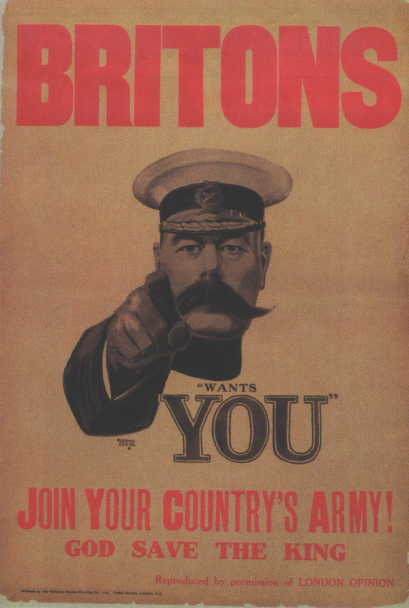 Films:
Films:
"All Quiet on the Western Front." Directed by Louis Milestone.
"From Here to Eternity." Directed by Fred Zinnemann.
"The Grapes of Wrath." Directed by John Ford.
"Reds." Directed by Warren Beatty.
"Saving Private Ryan." Directed by Stephen Spielberg.